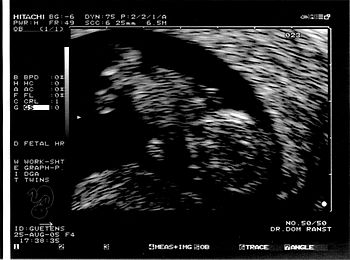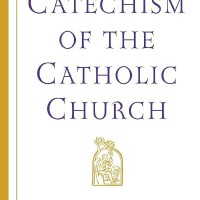I tried really hard to avoid writing about Cecil the lion. Like many people, I don’t really see the point in big game hunting. But I also don’t understand how this one case escalated to international news. I don’t know the statistics, but I assume big game hunting (legal and illegal) goes on all the time. Why this case got so much attention beats me. I then came across an article that summed up why maybe this lion story touched such a collective nerve.
Over at CatholicAllYear.com, Kendra wrote an article titled Why We Feel Better if We Care About Cecil the Lion. She recognizes the human need to acknowledge universal truth in a world that tries hard to suppress it. She writes:
A huge segment of our population has been struggling ever since they reached the age of reason to reconcile a personal disgust with the idea of abortion, with the loudly trumpeted demands that we all must recognize that it’s NONE OF OUR BUSINESS and we’d better just pipe down. Choice. My body. Reproductive freedom. It’s not really a baby. All of it has been shouted in the streets until two generations now honestly can’t tell right from wrong or good from evil.
The same goes for other evils we’re supposed to celebrate as choice: like euthanasia, and free love, and conceiving children in such a way as to necessarily deprive them of one or both of their parents.
Moral relativism denies a fundamental part of our Truth-seeking human natures. As human beings, we crave moral absolutes. We know somewhere deep down that there IS such a thing as wrong, such a thing as evil. And we want so badly to be allowed to point a finger at it, finally, that when poor, not-actually-all-that-important-in-the-grand-scheme-of-things Cecil the lion comes along, we can barely contain ourselves.
Here’s my take. People are upset because unlike other animals killed by hunters, this lion has a name and a history. Like we do with our pets, we personify Cecil so his killing strikes at the same parts of our emotions as a human being’s murder. This personification is why we cry watching Old Yeller and the lack of it is why most of us don’t give a second thought to the thousands of animals that are killed every day for food.
This lack of identification is also why we don’t bat much of an eye over the evil of abortion. Because it’s evilness becomes strikingly obvious when you realize that every abortion is a life lost. Does the fact that the aborted life didn’t have a name or a history make it any less tragic when he/she is killed? Are we as a culture so short sighted that we don’t understand that an aborted life would have had a name and history if we let him/her grow? We’ve murdered millions of Alisons, Margarets, and Jakes. We’ve murdered many successful doctors, writers, engineers, and scientists that the world will never know. We’ve murdered millions of best friends, husbands, shoulders to cry on, mentors, and co-workers. It’s shocking what something as simple as attaching a name to a life does to the perceived value of it. In one case, attaching a name to an animal raises international outcry while not attaching a name to a human being allows the murder of thousands every day.

The RosaryMeds Prescription
Whenever the issue of abortion comes up as it is with the release of these shocking videos from The Center for Medical Progress and debates within the halls of Congress, the Second Joyful Mystery seems like an obvious mystery to meditate on. Elizabeth exclaims how the baby in her womb leaped for joy at the sound of Mary’s greeting (Luke 1:44). It’s not “the tissue moved” or “some cells divided”, but a baby leaped out of joy. This mystery reminds us just how precious life is at every stage of development and that we are infused with a soul at the moment of conception. We must pray for the conversion of souls and the conversion of our culture to acknowledge the inherent dignity of human life at all stages.

But let’s dive deeper. What about this craving for universal truth that the CatholicAllYear article mentions? What rosary mystery speaks to the importance of knowing what is right and wrong? The First Luminous Mystery comes to mind. When I meditate on this mystery, I remember that not everyone is baptized into the Catholic Church and yet everyone does have the God given gift to know what is inherently good and what is evil. This is often referred to as natural law and it’s something God inscribes in all our hearts; both the baptized and the unbaptized alike.
We live in a culture that tries so very hard to deny this natural law and reject this gift from God. When we pray the First Luminous Mystery, let’s remember to pray for the conversion of those who struggle in life because of their denial of truth. We must also pray for the conversion of our world to one that lives in acknowledgement of natural law, not in denial of it.
Notice anything different on the RosaryMeds home page? More news on the new Meditations link coming soon.




























































